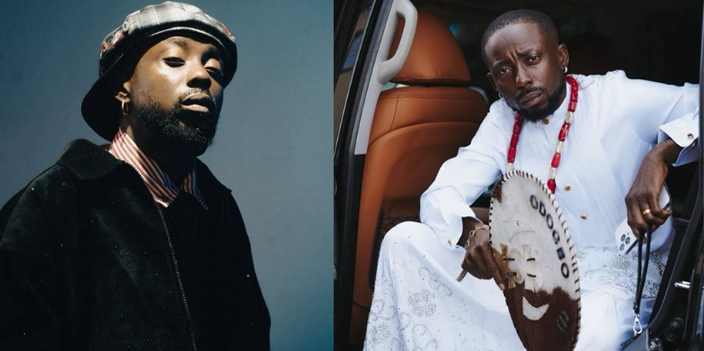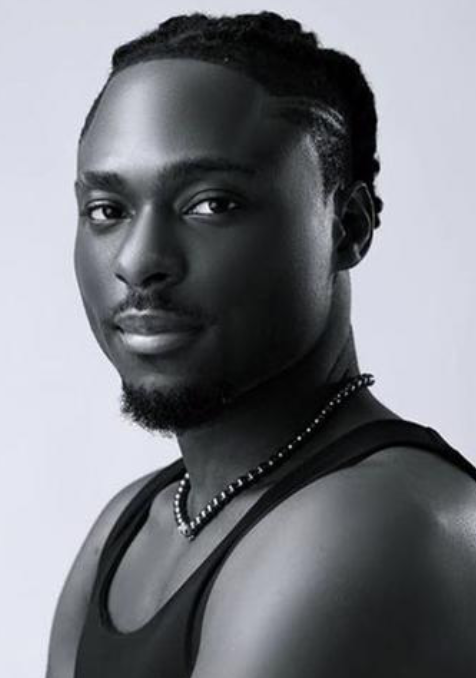
"Gle450 No Be Legacy" – Erigga Fires Shots at Shallow Views of Generational Wealth

Nigerian rapper and street philosopher, Erigga, has once again triggered thought-provoking conversations on social media, as he took to his X (formerly Twitter) page to mock the shallow interpretation many Nigerians attach to the concept of generational wealth. The Warri-bred lyricist, known for his razor-sharp wit and unapologetic truths, didn’t hold back as he slammed the illusion that owning a luxury car and a house in a decent neighborhood automatically translates to building wealth for future generations.
In a now-viral tweet, Erigga wrote: “No go Dey feel say generational wealth na that GLE450 and 4bedroom duplex when u buy for Ologolo.” The post, though short, ignited widespread reactions online, with many agreeing with his brutally honest take, while others felt the need to defend their version of financial success.
The tweet, like many of Erigga's previous social commentaries, cuts across the vanity that plagues a growing section of the youth population. With the glamorization of wealth on social media, a significant number of people now equate generational wealth with high-end consumerism—luxury cars, designer outfits, and exotic homes in upcoming estates. However, Erigga's point, sharp and dismissive as it may seem, challenges people to think beyond flashy assets that depreciate in value and consider long-term sustainable investments that outlive them.
His mention of the GLE450, a luxury SUV by Mercedes-Benz often flaunted by Nigerian celebrities and the wealthy elite, is not coincidental. In recent years, the car has become somewhat of a status symbol, frequently paraded on Instagram feeds and music videos as the ultimate trophy of success. The same can be said of the 4-bedroom duplexes in locations like Ologolo, a growing residential area on Lagos Island that has quickly become a hotspot for middle-class property buyers.
But Erigga is clearly unimpressed. He implies that these assets—though impressive—are fleeting symbols that don’t necessarily secure the future of one’s offspring or generations unborn. A car depreciates the moment it leaves the dealership. A house may age or become obsolete depending on the economic and infrastructural evolution of its environment. In contrast, generational wealth, in its true sense, goes beyond aesthetics—it involves strategic planning, investments, financial literacy, education, family businesses, trusts, and more.
Social media users quickly caught onto the rapper’s sentiment. Many reposted the tweet with nods of agreement, saying that Nigerians are often caught up in “owning to oppress” rather than “investing to sustain.” Others dropped anecdotes of relatives who owned prime properties and flashy rides in their time, only for their children to end up in financial ruin due to a lack of proper wealth planning or financial education. One user commented: “My dad had three houses and two Benz cars, but we still had to hustle from scratch after he died. He didn’t teach us anything about money. That’s not generational wealth.”
The discourse Erigga sparked goes beyond the personal—it hits at a systemic issue within Nigerian society. The obsession with material display has, over time, overtaken the culture of financial discipline, long-term planning, and legacy building. Many young Nigerians dream of escaping poverty, not necessarily by creating value, but by “arriving”—buying visible markers of success that offer immediate validation but little future security.
Erigga, born Erhiga Agarivbie, has never shied away from delivering uncomfortable truths. With lyrics that speak directly to the streets, he has built a reputation as not just a rapper but a raw commentator on the socio-economic struggles of the average Nigerian. His rise from the gritty streets of Warri to mainstream recognition didn’t come with sugar-coated lyrics or watered-down stories. It came from truth—ugly, sometimes painful, but always real. And this latest tweet is no different.
The reality remains that wealth building, especially of the generational kind, requires deliberate effort. Financial experts continue to stress that true generational wealth is rooted in assets that appreciate and compound over time—stocks, real estate investments, diversified portfolios, businesses, intellectual property, and most importantly, knowledge passed down. It is not enough to leave children with physical properties; they must be equipped with the financial intelligence to maintain and multiply those assets.
Moreover, a house without a will or trust structure can easily become a source of family disputes. A car with no succession plan is as good as useless once the original owner passes. That’s the kind of conversation Erigga is pushing people toward—not just the acquisition of wealth but the intelligent management of it across generations.
His critics, however, argue that Erigga’s message might seem dismissive of those who genuinely see a house or car as a major breakthrough—especially in a country like Nigeria, where poverty is widespread and infrastructure is lacking. For many, buying a GLE450 or owning a house in Ologolo is a massive achievement, and rightfully so. But even in that truth lies another—those achievements, while commendable, should be seen as milestones, not the final destination in the journey of legacy building.
As the conversation grows, so does the realization that wealth is relative—but legacy is intentional. While one may not immediately afford stocks or international investments, the mindset to build beyond oneself is what defines generational wealth. Teaching children how to manage money, encouraging education, creating a business structure that outlives you, and having legal documentation for your assets—these are the true cornerstones of legacy.
Erigga’s blunt delivery might not be everyone’s cup of tea, but his message is crystal clear: don’t be fooled by shiny things. Generational wealth is not what you post on Instagram—it’s what sustains your bloodline when you’re no longer here to tweet about it.
As the dust settles on the trending post, one thing remains certain—once again, the "PaperBoi" has used less than 280 characters to spark a national conversation about value, wealth, and legacy. And in true Erigga fashion, he didn’t need a song or an album drop—just one tweet and the internet listened.


